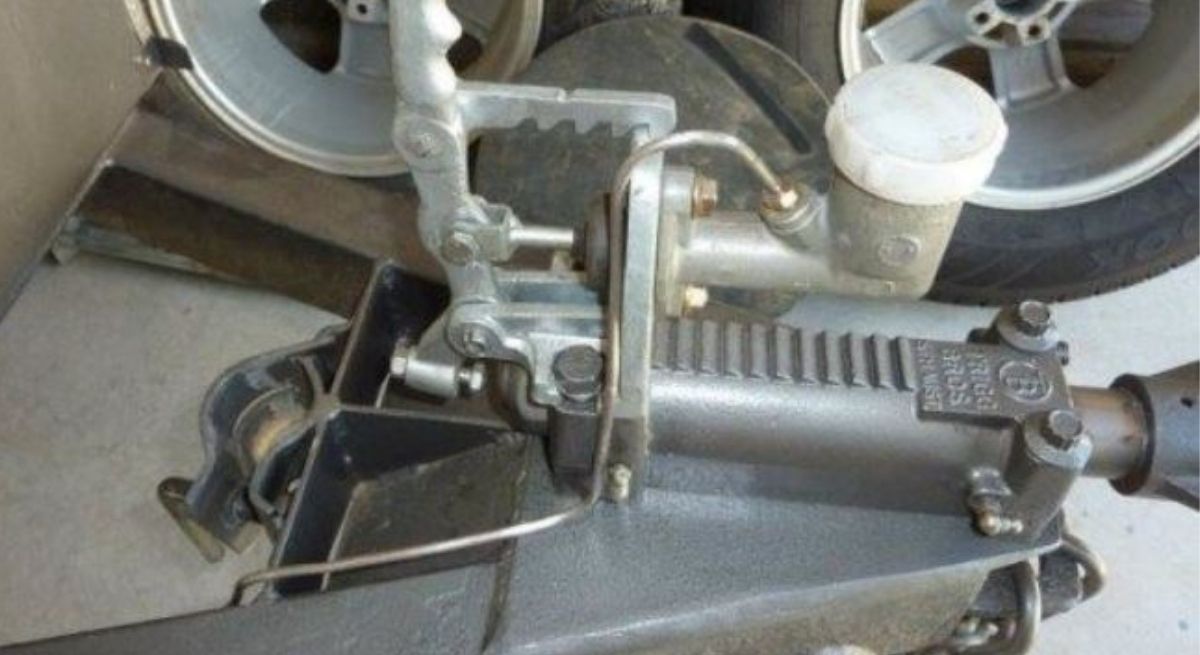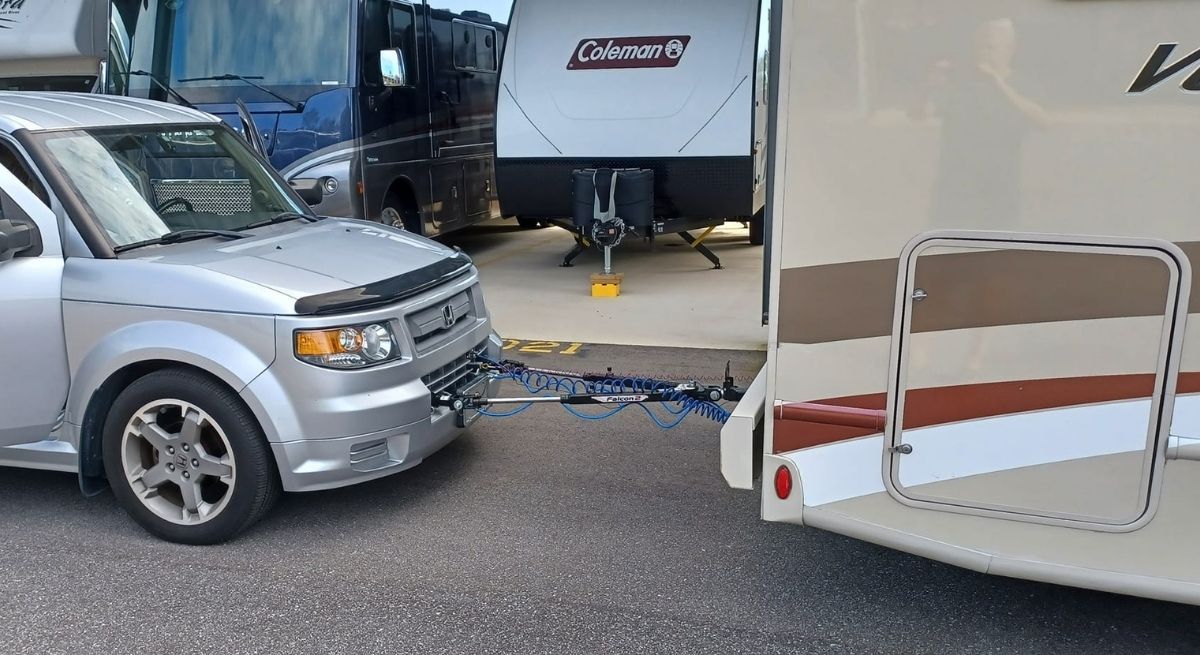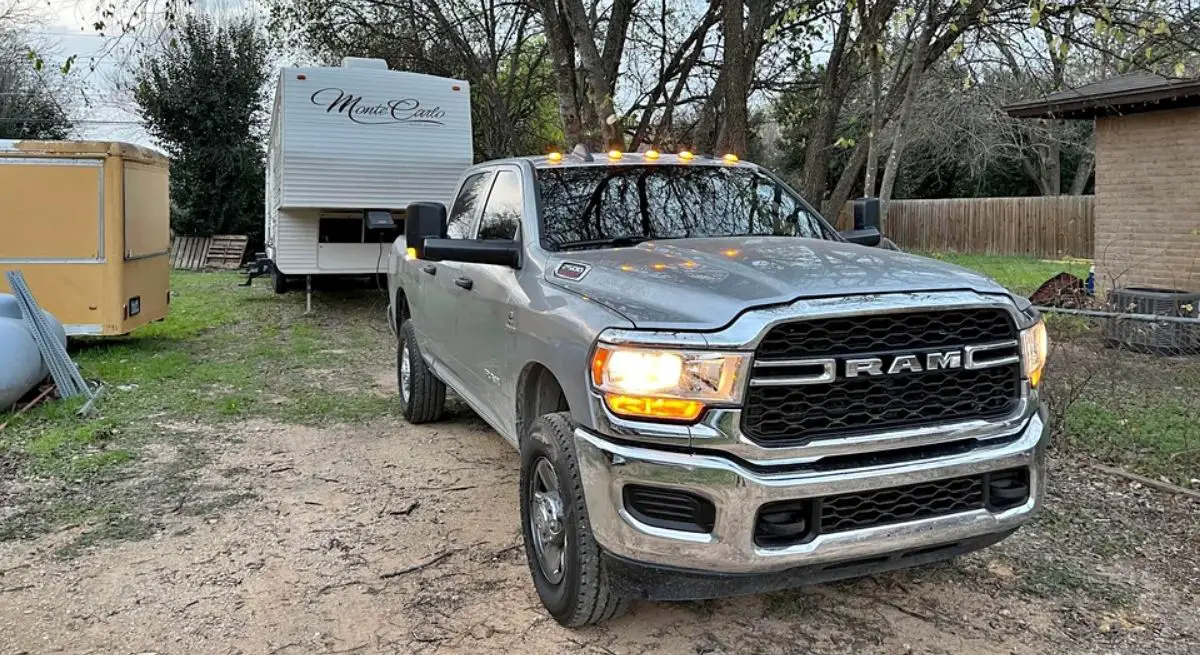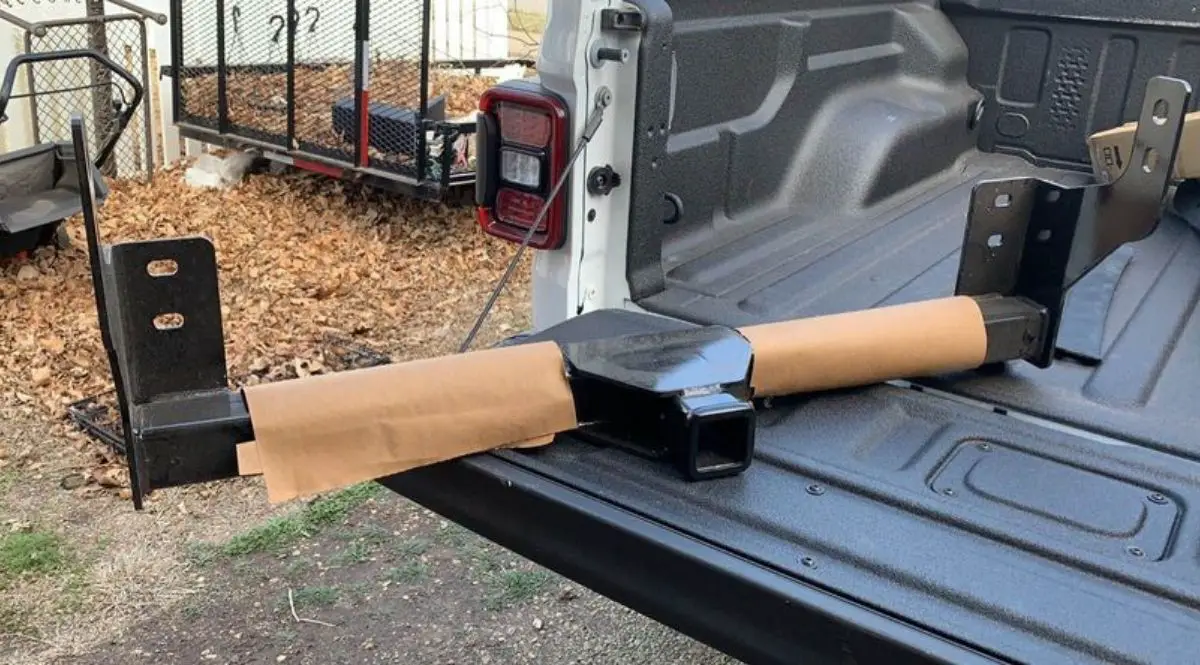How To Check If Trailer Surge Brakes Are Working Properly?
- Check that the breakaway switch is in the off position and is in good working order. Also, check that the breakaway rope is in good condition. If it is frayed or damaged, replace it.
- Check the fluid level in the master cylinder. If it is low, fill it to the appropriate level with the recommended brake fluid. If it has run dry, fill it to the appropriate level with the recommended brake fluid and bleed the brakes according to the manufacturer’s recommendations. During the bleeding process, look for leaks or other issues which may have caused the fluid loss. Make necessary repairs.
- Look over the entire system, and check for leaks or any issues which would prevent the brakes from operating properly.
- Check any electrical connections/plugs between the trailer and your tow vehicle. Clean all contacts if necessary.
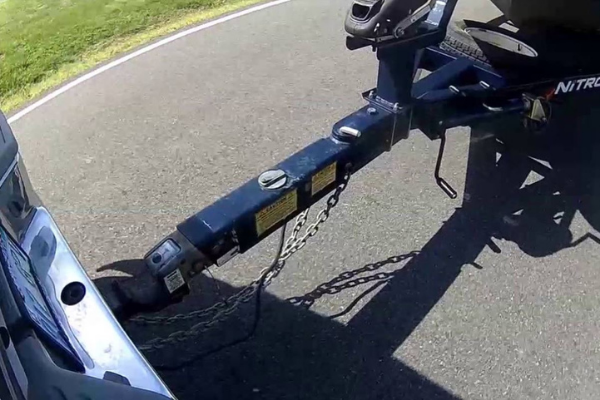
- Hook up your tow vehicle to the trailer. Deactivate your reverse lockout if you have one. Try backing the trailer up. If the brakes are working correctly, the brakes should come on and prevent the trailer from moving easily. The brakes should apply evenly on both sides of the trailer. If they do not turn on, or if both sides are not on evenly then you may have an issue. If your system uses disc brakes then this is a reliable test. Some types of drum brakes are known to not function very well in reverse. You may hear these brakes drag, but not fully activate in this test. If you have drum brakes, you can double-check the function with one of the other methods.
- Take your trailer out for a drive and bring the trailer to a full stop several times over a short period. Use an infrared thermometer to measure the temperature of the brake drums or discs. They should be hot and the brakes at each wheel should be around the same temperature. If you find one or more to be cool then those brakes are not functioning correctly or are out of adjustment.
- Flip the breakaway lever over to activate it and try moving the trailer. If your brakes are working correctly, all the wheels should be locked up. You can also jack up individual wheels to confirm that they all have the brakes applied.
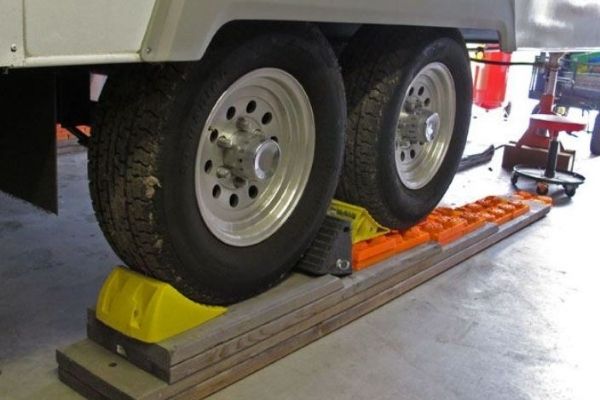
Surge Disc Brakes Makes A Loud Noise When I Stop Or When I’m Taking Off
- Then double-check your system and make sure the master cylinder is properly filled with brake fluid. If there is no fluid in the reservoir, the brake may not activate correctly and allow the trailer to move excessively on the actuator. That extra movement will create loud noises as you stop and start.
- Next, you’ll want to determine if the sound is coming from the coupler or the brakes themselves. If it is occurring at the brakes then inspect them for broken or worn-out pads or any other issues in the calipers. You can also look for bad wheel bearings or worn suspension components. These worn components can shift around when the brakes are applied or released and cause loud noises.
- If the sound is coming from the coupler/actuator then inspect those items. As mechanical parts that move during normal operation, they do wear over time. That wear can lead to slop in the system that can turn into loud banging during starts and stops. Replace any worn parts and grease/lubricate as necessary.
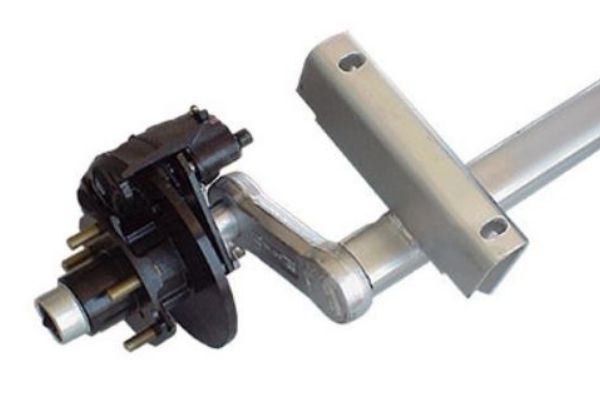
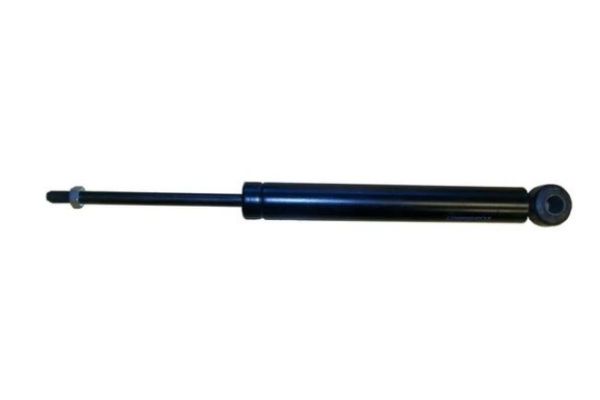
Sticky or locking upsurge brakes are generally caused by issues in the brake actuator or master cylinder. Inspect your brake actuator for any worn-out parts or debris which may be inhibiting its proper function. Clean and/or replace parts as necessary. Manually cycle the actuator and confirm that it is not sticking or binding.
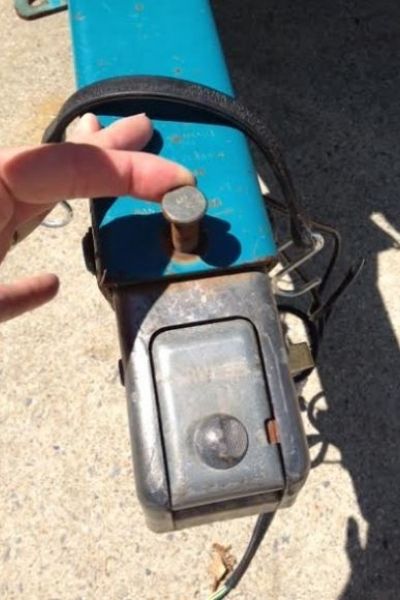
Confirm there is a proper amount of brake fluid in the master cylinder. Also, make sure your brakes are properly adjusted if you have drum brakes. Low fluid or brakes that are out of proper adjustment can allow the actuator to move further than normal which can lead to the actuator sticking with the brakes on.
You’ll also want to inspect the master cylinder itself and make sure it’s working properly. Check that it is pushing fluid as you would expect and that the piston is properly returning to the non-active position each cycle. Tips for checking the master cylinder can be found below in the “My surge brakes are not releasing after braking?” section.
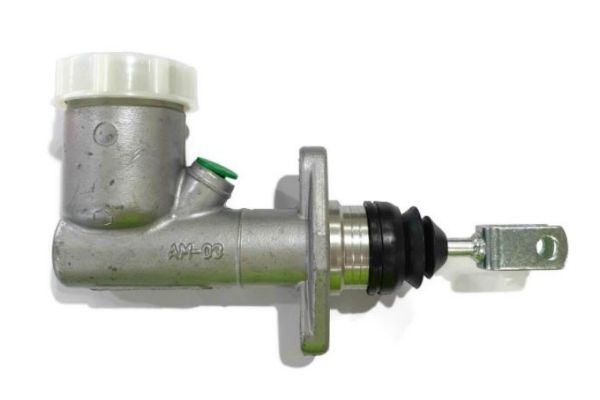
If you don’t locate the issue in the actuator, check your brake lines for kinks, dents, or restrictions. Any restrictions which prevent the brake fluid from flowing smoothly can lead to sticky brake issues.
My Surge Brakes Are Not Releasing After Braking?
Surge brakes not releasing after breaking can have several causes which fall into two general categories.
- Are mechanical issues with the brakes themselves which prevent them from releasing. These are usually related to mechanical failures or poor maintenance. On disc brakes possible causes include frozen or sticky (rusted) slide bolts, sticking caliper pistons, and broken or damaged pads. Drum brakes can seize up due to rusty internal components, broken return springs, seized pistons, and broken or damaged pads. These issues can usually be prevented by following proper brake maintenance procedures. Correcting the issues when they occur simply involves locating and replacing the faulty parts.
- The other possible culprit when your brakes won’t release is an issue that prevents the hydraulic fluid from back flowing in the system when the brakes are released. This can include several issues located throughout the system. Possible issues include:
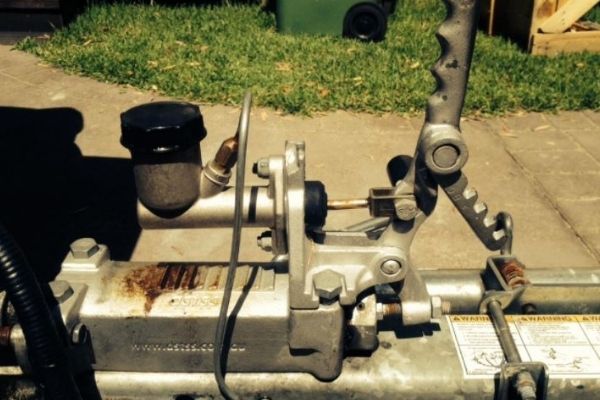
To locate the issues, you will want to inspect the entire system from actuator to caliper or drum. Make sure all the components are moving freely and working as they should.
To check the master cylinder, disconnect the brake line from the master cylinder port. Be careful to remove the brake line from the orifice fitting, leaving the fitting in the master cylinder. With the break line removed inspect the inside of the orifice fitting, and look for any fine dirt which could be clogging the orifice and preventing the fluid from returning to the reservoir.
Pump the actuator, you should get a very fine steady stream of brake fluid spraying through the orifice hole. If you don’t, remove the orifice fitting and see if you can see daylight through the hole. If not, try and blow it out with some compressed air. If you can’t get the hole cleared, replace the fitting. If you do find dirty fluid in the lines after the orifice fitting, flush the lines with clean fluid before reassembling, filling, and bleeding the system.
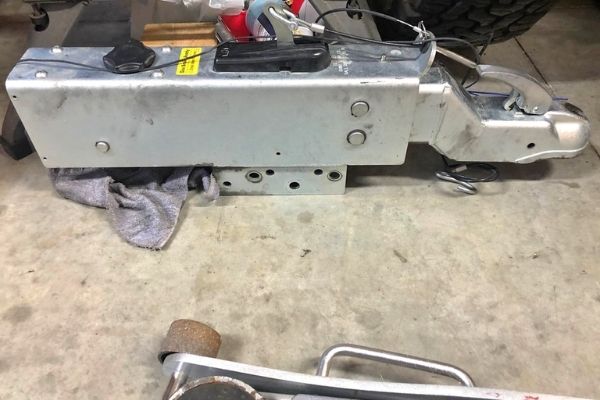
Why Does My Brakes Work On One Side But Not The Other?
When the brakes work on one side and not the other there is usually an issue in the hydraulic lines. Inspect the hydraulic lines leading to the non-working side for kinks, dents, or leaks which could be preventing hydraulic fluid from properly actuating the brakes on that side.

Other possible causes are lack of proper adjustment if you have drum brakes, leaking or failed pistons, and worn-out shoes/pads.
Why Is My Surge Brakes Sticking In Reverse?
If your surge brakes stick while you are in reverse then you most likely have an issue with your reverse lockout system. Make sure you have activated it if it is a manual lockout. If you have an electrical solenoid lockout then confirm that it is functioning correctly and that it is getting proper power when the vehicle is put in reverse.
My Surge Brakes Are Leaking Fluid Under The Tongue?
If your surge brakes are leaking fluid under the tongue then you likely have a leak in the master cylinder or the reverse lockout mechanism. Closely inspect the actuator, master cylinder, and reverse lockout solenoid if equipped to try and locate the leak.
A common source for leaks on systems with a reverse lockout solenoid is the return hose running from the solenoid back to the master cylinder reservoir. These hoses commonly crack with age and spring leaks. A telltale sign that this may be your issue is if the leak only occurs while you are backing up. If your system has this set-up, look carefully at the hose and where it connects on either end to spot any leaks.

